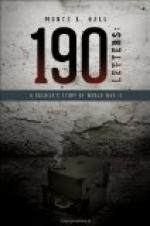If you are going to see the pictures of the great poet Gustave Moreau, you will see a panel called La vie de l’humanite (I believe). It consists of nine sections in three divisions, called l’Age d’or, l’Age d’argent, l’Age de fer. Above is a pediment from which Christ presides over this human panorama. But this is where this great genius has the same intuition as you had: each of the three parts bears the name of a hero—Adam, Orpheus, and Cain, and each one represents three periods. Now, the periods of the golden age are called Ecstasy, Prayer, and Sleep, while the periods of the silver age are called Inspiration, Song, and Tears.
Ecstasy is the same as Grace, because the picture shows Adam and Eve in the purity of their souls, in a scene of flowers, and in the enjoyment of divine contemplation. The harmony of Nature itself urges them on in their impulse towards God.
In the silver age, Inspiration is still Grace, but just beginning to be complicated by human artifice. The poet Orpheus perpetually contemplates God, but the Muse is always at his elbow, the symbol of human art is already born; and that great human manifestation of God, Song, brings with it grief and tears.
Following out the cycle and coming to human evil, Gustave Moreau shows the iron age—Cain condemned to labour and sorrow.
This work shows that the divine moment may be seized, but is fugitive and can never remain with man. It explains our failures. People say that the picture is too literary, but it touches the heart of those who wish to break through the ice with which all human expression is chilled.
Undoubtedly Rembrandt was the Poet of genius par excellence, at the same time as he was pure Painter. But let us grant that ours is a less rich time, our temperaments less universal; and let us recognise the beauty of Gustave Moreau’s poem, of which, in two words, you expressed the spirit.
YOUR SON.
December 24, morning.
Our first day in the outpost passed away in the calm of a country awaiting snow. It came in the night.
In the back gardens, which lie in sight of the Germans, I went out to see it, where it emphasised and ennobled the least of things. Then I came back to my candle, and I write on a table where my neighbour is grating chocolate. So that is war.
Military life has some amusing surprises. We had to come to the first line before two non-commissioned officers found a bath and could bathe themselves. As for me, I have made myself a water-jug out of a part of a 75.
. . . I will not speak of patience, since a reserve of mere patience may be useless preparation for the unknown quantity. But I must say that the time goes extremely quickly.
We spend child-like days; indeed we are children in regard to these events, and the benefit of this war will have been to restore youth to the hearts of those who return.




